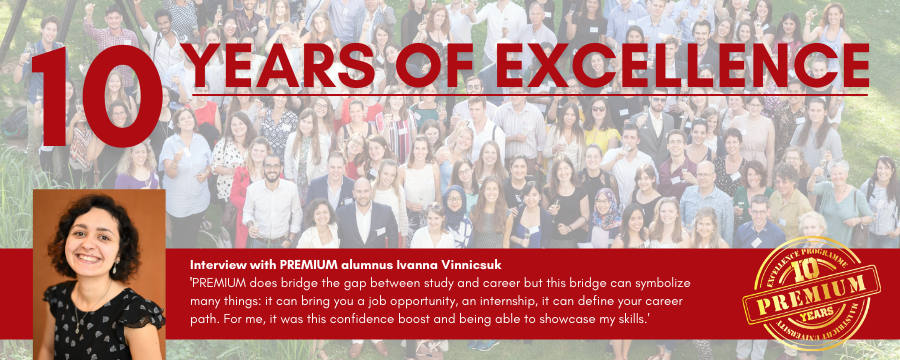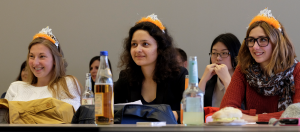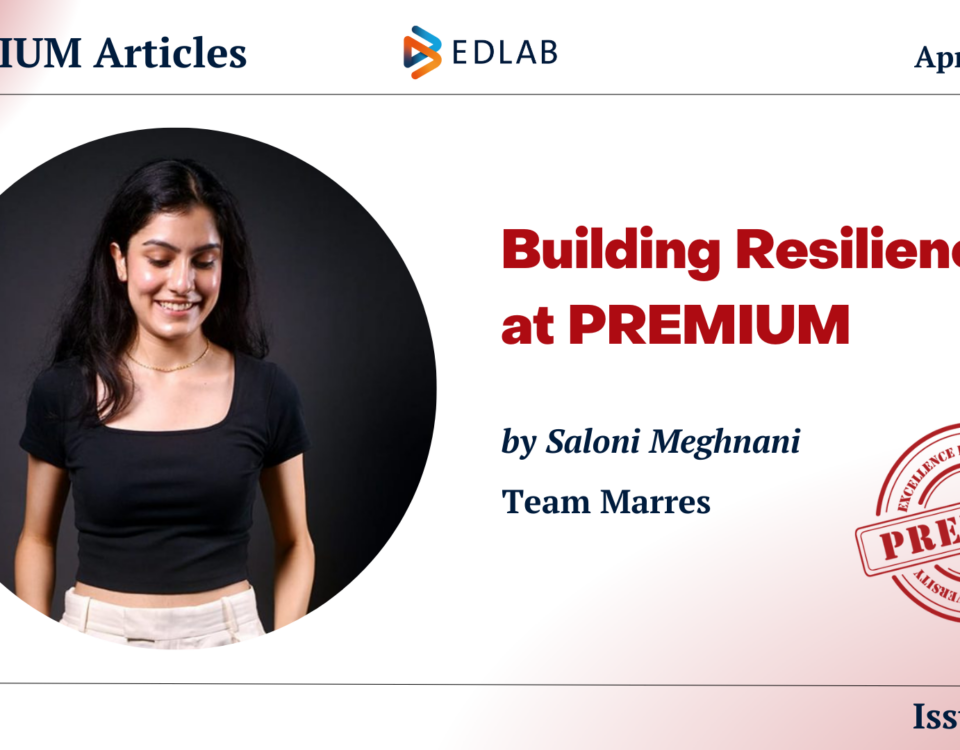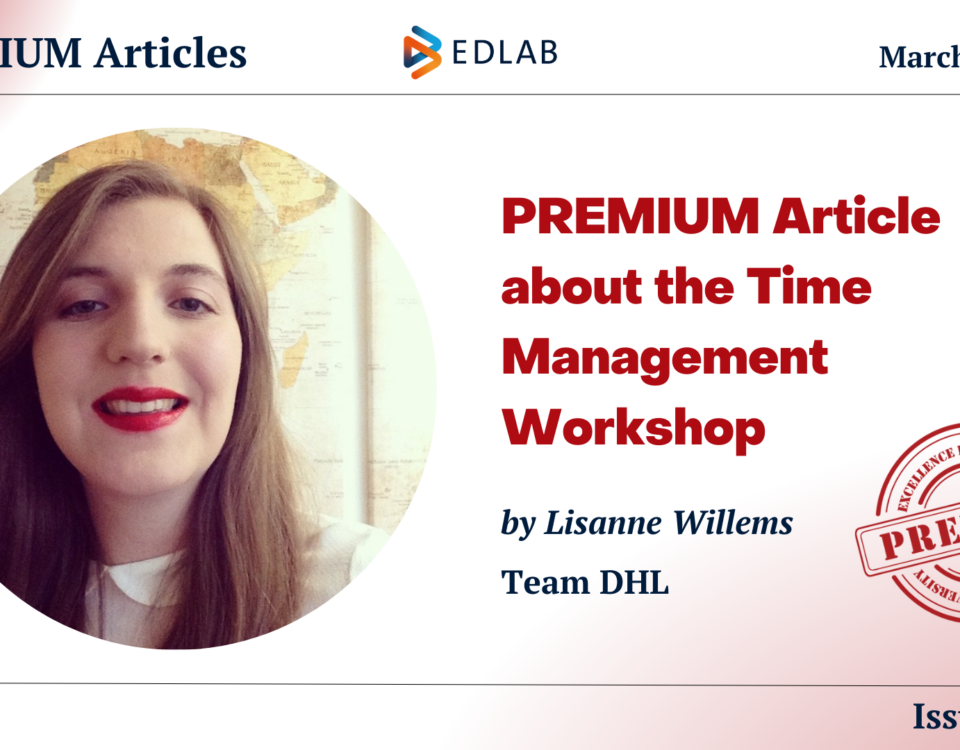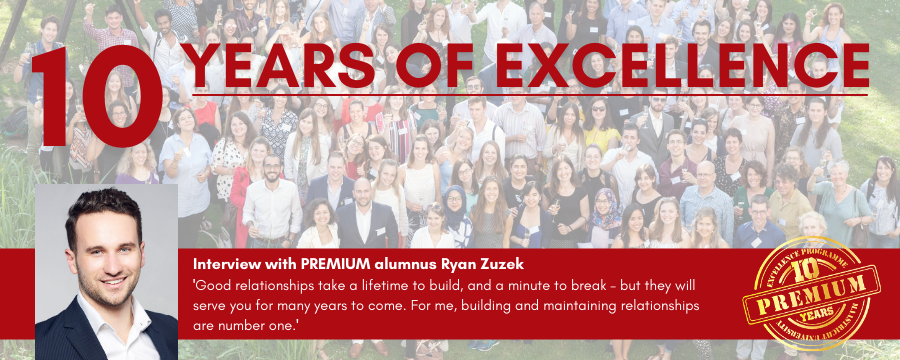
10 years of PREMIUM – A decade of Excellence
22-03-2021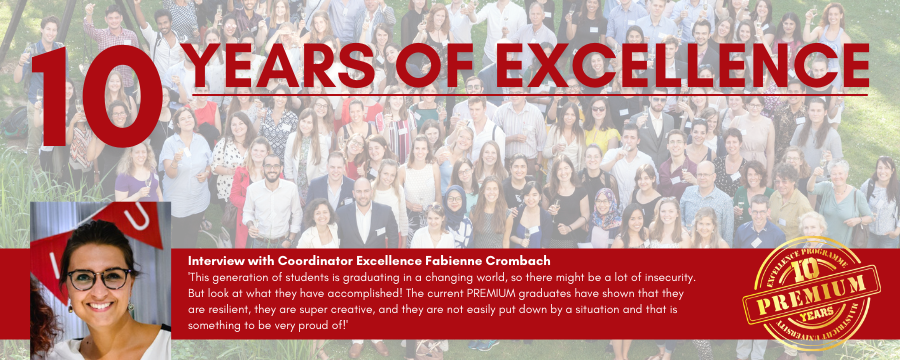
10 Years of PREMIUM – A decade of Excellence
28-04-2021In honor of 10 years of PREMIUM, we look back on what a decade of PREMIUM has meant for our alumni, coaches, mentors, clients and trainers.
Ivanna Vinnicsuk was a MA student at FASoS, Media Culture and participated in PREMIUM during academic year 2015-2016. Ivanna was part of the project team for client Porta Mosana.
When speaking of important parties for the PREMIUM programme, we cannot leave out Ivanna Vinnicsuk, who has been very involved in the programme for quite some years. From being a PREMIUM student, to an ambassador and finally to Junior Coordinator. After some time, she said goodbye to Maastricht and moved to Rotterdam where she now works as a Relationship and Sales Manager at CIC Rotterdam – A space and community for exceptional entrepreneurs in the heart of Rotterdam.
‘At CIC, our concept aims a lot towards building both internal and external relationships within the community, connecting clients with each other and delivering high quality service to our clients. The diversity of job tasks in my position and building relationships is what attracted me in this job. I am very much a community enthusiast. I really wanted to develop my community building skills further in a different environment. I like working with ambitious people, and working with start-ups and founders is a completely different experience on its own. They are very determined and hard-working people, so there is a lot to learn from them, which is inspiring.’
You have been a PREMIUM student, an ambassador for the programme and you worked as the Junior Coordinator Excellence for the programme: what makes the PREMIUM programme so special for you?
‘Throughout my life I have always been eager to take up more than just the regular curriculum or regular activities. So when I moved to the Netherlands for my studies, this is eventually what I did as well. I became a student presentative for the MA programme and next to this I did the PREMIUM programme. I was looking for that extra challenge and work experience to actually showcase my skills and gain a professional edge for my CV and this is also why I joined PREMIUM. PREMIUM was a very rewarding experience – I really appreciated the opportunity to connect with other people, build a project with others and the coaching component.
After graduation, the opportunity of being a PREMIUM ambassador came up. This was perfect, as I was not ready to say goodbye PREMIUM yet. I loved that I was still involved in the programme and it also helped me in gaining experience in areas where I still wanted to improve, more specifically in marketing and communication.
Later on, when I heard that there was an opportunity to come back to EDLAB and work for the PREMIUM programme I decided to take the opportunity and I became Junior Coordinator. I stayed for quite some time – almost 2,5 years.‘
Has the PREMIUM programme changed you?
‘PREMIUM gave me a confidence boost when entering the labour market. For example when I had my first interviews after graduation, I used my PREMIUM experience to highlight my communication, problem-solving and time management skills which is really helpful. When entering PREMIUM, this was actually my goal; not per se getting a job through my PREMIUM project, but getting the base of important skills. PREMIUM does bridge the gap between study and career but this bridge can symbolize many things: it can bring you a job opportunity, an internship, it can define your career path. For me, it was this confidence boost and being able to showcase my skills.’
What is the most important thing that you have learned from PREMIUM?
‘The coaching trajectory was important to me. When I started the sessions with my coach, I stated (as many other PREMIUM students) that I wanted to improve my time management skills to be able to do more work. Soon, during the coaching sessions, we actually discovered that the reason for me wanting to improve my time management skills was to be able to speak up at the right time. For example, imagine when you are working on a project with a team and someone is not doing his/her job. Instead of addressing this immediately, you postpone this. Eventually, you reach the moment when the situation blows up in your face. That is when you realise: if I had addressed this right from the start, we would not have these time management problems right now.
You need to fix the problem, not the symptoms. You have to address things and manage expectations immediately. Those conversations with the coach were very helpful and I still use this now. I have become very straightforward, almost Dutch even!‘
How did you benefit from the interdisciplinary approach during PREMIUM?
‘Working in an interdisciplinary team helps you grow as a person and it helps your project’s progress. You tackle a problem from other perspectives and you learn from each other. Together you can achieve greater results. In my current job, we still have certain projects together with people from diverse teams and I still try to provide space for others to give their opinions and input. PREMIUM has taught me to use this interdisciplinary approach in team dynamics. Basically, you are starting to use this approach on a daily basis – outside PREMIUM, outside university, even in your family environment!‘
What advice would you give to future PREMIUM students? What would you have done differently?
‘I would advise them to really experiment in their projects; it’s such a low risk environment to do so. You can think of the craziest idea and just do it – you are not going to get fired or not receive any salary. I would advise them to look at what you are capable of in terms of the ideation phase, I would recommend that.
Looking back, I would have definitely connected more with the fellow alumni in my year than I actually did. During PREMIUM, I spent most of the time with my team. Of course, we were a great team, some of them were even at my graduation party, but there are so many awesome people in PREMIUM that I regret I didn’t connect with more.’
What is your most special PREMIUM memory?
‘While being a PREMIUM student, I would choose the Midterm presentations. We created an entire fairytale-like story around our presentation. Although I do not remember the exact story anymore, we had a lot of fun preparing the presentation with our team.‘
What do you think PREMIUM will look like in 10 years?
‘It will still continue to have its existence within UM, with a good number of students, but maybe it will be conducted in a bit more hybrid format, a combination between digital and offline. Also in terms of projects, I think parties that are not only part of the region but even beyond will join. The format might change a bit, but the key components will remain. ‘
If you could let your fantasy go wild – how would you love it to be like in 10 years from now?
‘I would love it to be more global! I would love to have more alumni involved in the programme itself, maybe a buddy system for the current students. Or for example having larger parties recognizing PREMIUM’s achievements and actually paying for participation for them providing students with an opportunity to travel to their headquarters- to connect it further to the labour market.’

